They work 24/7 and they are unconditional allies of Economy Minister Sergio Massa. With their pens, the trio put down on paper the political directives put forth by the head of the Treasury. Their profiles remain low, but those close to the ex-Tigre mayor admit that speaking with them is a way “to reach Sergio.”
The best known of the trio is Massa’s deputy, Gabriel Rubinstein. It took more than two weeks for him to assume his role after controversial posts he made on Twitter in the past, referencing Vice-President Cristina Fernández de Kirchner, made it into the public eye. That is why, ever since Rubinstein was sworn-in as economic planning secretary, the former president has tried not to even cross paths with him.
Rubinstein, a veteran economist, is nicknamed "the mute" because he has been muzzled in his public statements since that episode. He joined the current team via former economy minister Roberto Lavagna, with whom he previously worked at the Central Bank, almost as the former official’s right-hand man. It is said that it was Lavagna himself who, in person, convinced him to take up the current position. Today, Rubinstein does not speak until Massa needs to say what would be politically incorrect in the eyes of the most radicalised sector of the ruling Frente de Todos coalition.
For example it was the deputy minister who, in the Senate, two weeks ago, defended cuts in the 2023 Budget that had left some Kirchnerites uncomfortable. Before the upper house, Ruinstein fired off several "liberal" concepts (as described by those occupying the K benches) but there were two core passages that stood out: those referring to the need to reduce monetary emission, which the official knows will be one of the main fights in the build-up to the 2023 election.
"We have a high inflation rate that other countries do not have, neither poor countries nor developed ones," said the secretary, who also warned that "we are flirting with hyperinflation" with relation to political practices and public spending.
At Aduana, Argentina’s Customs agency, Guillermo Michel has become much more than a key player in foreign trade. With his legal background, he managed to prevent many companies from demanding precautionary measures, at least for this year, totalling close to US$2.6 billion dollars.
Michel is the official who monitors every manoeuvre from exporters and importers, keeping a close eye on the journey of each dollar. He is also in charge of the fine print of the fiscal agreement that the economic team hopes to have finalised before the end of the year and which should allow a strong inflow of foreign currency throughout 2023.
But if we are talking about monetary policy design, we must look at Lisandro Cleri, the deputy governor of Argentina’s Central Bank. In market circles, they say that the official who replaced Arnaldo Bocco at the monetary authority knows all the ins and outs of the operating systems of the institution. He tends to bother the president of the Central Bank, Miguel Pesce, who has a pact of mutual coexistence with Massa himself. In fact, the post-holder’s continuation in office has been ratified by President Alberto Fernández himself.
Cleri is obsessed with the fine print of every possible financial agreement, and those who know him intimately maintain that he spends many hours looking for strong arguments to refute many of the questions of the International Monetary Fund technicians, who every three months review the national public accounts, inflation targets and level of Central Bank reserves to endorse a new disbursement that is always essential to pay the debt.
by Alejandra Gallo, Perfil





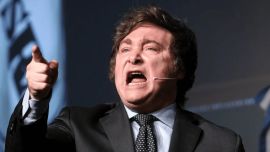



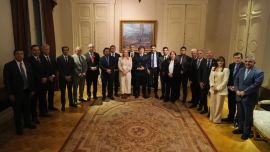

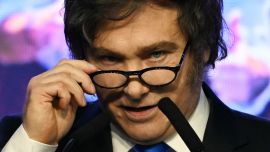
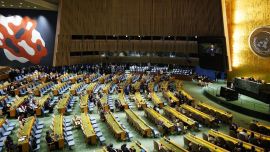
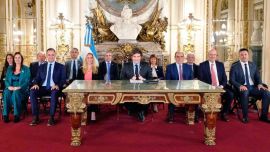





Comments